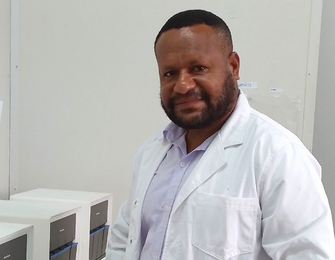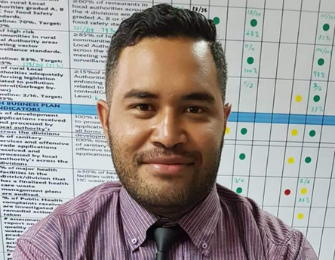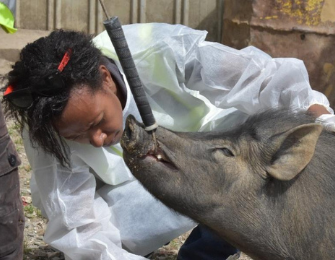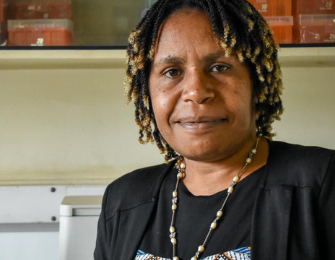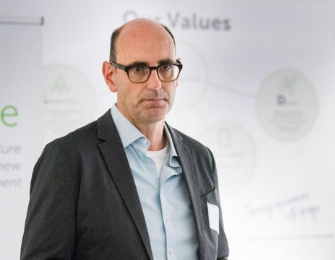
Throughout 2019, we're highlighting contributions to the health security of our region made by outstanding individuals, from the research lab to the community clinic. Mark Sullivan's work developing medicines for neglected diseases has successfully brought new treatments to market Hepatits and Onchocerciasis, and worked on many more.
Mark is the 2019 Victorian of the Year, and is currently nominated for Australian of the Year. We asked Mark about his work in global health.
Was there a particular experience or influence that drew you to work in health security/global health, in particular in non-profit?
There were many experiences that led me to devote myself to global health, but the one that I carry with me the most is the helplessness I felt in the early 1990s watching the HIV epidemic take people I knew– we didn’t have the right tools to treat this devastating disease, and it wasn’t clear that we ever would. And then in just a few short years, the medicine I was working on and a number of other important drugs achieved regulatory approvals: HIV became a chronic disease. I’d worked on 4 medicines that made it through to be prescribable medicines before returning to Australia, and saw the impact that new or better treatments can have on a disease. I could also see that the machinery to development medicines was in desperately short supply in Australia, so I set up Medicines Development as a not-for-profit to create accessible machinery. I’ve also been long inspired by Professor David Cooper, my inaugural board member, who died last year – David was passionate about better treatments and equitable access, and he believed in me and what we were trying to do. I look at a picture of him every day and work to honour his memory.
What goals did you have then, and have they changed between when you set out and now?
The motivation I had working in industry in Europe and the US is identical to that I have now and I count myself incredibly lucky to have worked with such extraordinary scientists and mentors in my career. The goal for Medicines Development was to license-in interesting technologies, preferably in infectious diseases, and undertake the development to determine if the technology should be progressed further down the development path or terminated. We’ve funded much of what we have done ourselves, but I also thought that the model would be appealing to others and garner support over time. I don’t think for a second that I am a particularly prescient person but it is fascinating to look back at our business plans from then and note that absolutely nothing has changed.
How does your work impact people’s lives, and when was the moment you realised that you made an impact?
Bringing a new treatment to the market where options were previously limited or non-existent is a rare moment in life as a development scientist. After we introduced a first in class treatment for chronic hepatitis B, the team I worked in received letters from both doctors and patients with personal, heartfelt thanks for our work. That was incredibly touching.
What are some of the challenges you face in your work?
Developing a medicine is one of the more complex human endeavours. It is expensive, highly technical, skill and team dependent, time consuming, and guaranteed to fail at least 9 times out of 10. It is also poorly understood outside of those who have worked on product development and that is because we have poorly communicated what is involved, even with the medical and scientific communities. That makes it hard to raise the quantum of money you need to from people outside of our field. It is also very challenging to manage the complexities of the process, to select the right people to work with you, to deal with the nuances in order to make the right decision every time while a dozen options swirl around, and to deliver this on time and on budget. To add to the mix, I’ve chosen to do this in global health where there is absolute market failure and the return on investment is so very unlikely to happen.
What is most rewarding about what you do?
Despite all the challenges, to think that my work and that of my team, near and far, can improve the life of one person, it’s enough. But we can improve the lives of hundreds of millions of people by bringing better treatments through. To make it through all the hurdles, the doubts and doubters, and get something out there to help people, that is special.

